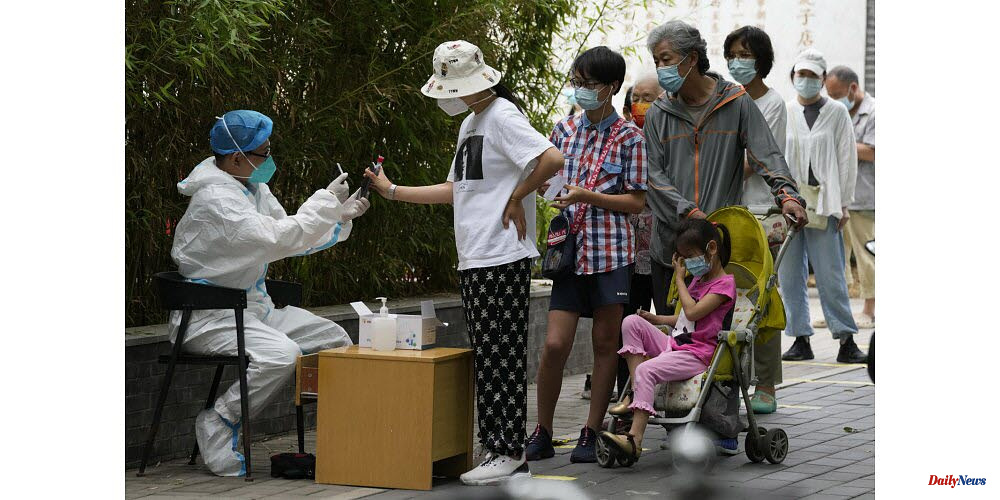Beijing, the Chinese capital, has launched a new general screening in the city's most populous area on Monday. This was after an epidemic resurgence that was linked to a bar, which resulted in the return of anti Covid restrictions. The new source of infection was discovered just days after May's lifting of restrictions on bars, restaurants, and gyms.
Authorities have indicted a resident for going to nightclubs in Chaoyang last week without performing a valid PCR test. The incident occurred after the victim developed a fever. The outbreak was linked to a specific bar and resulted in at least 183 infections in the capital where 22 million people live.
The authorities closed bars, night clubs, and karaoke in many districts, including Chaoyang where some restaurants were also closed. On Monday, the Chaoyang district was opened for general screening of its 3.5 million residents as well as millions of employees. Three PCR tests will be required.
Over the weekend, authorities sealed off many residential buildings and shopping centers in the area. Sports events were cancelled. Contrary to initial plans, schools did not reopen Monday. Also, the reopening at Universal Studios was delayed until June 15.
Shanghai saw more than half the 25 million residents undergo a mandatory PCR test this weekend. This was less than two weeks after they were released from long confinement. Monday's announcement by the Ministry of Health in China revealed 143 new positive cases, 51 of which were in Beijing.
China is the only major economy that has a zero-Covid strategy. This includes quarantine for people who are positive, mandatory PCR testing, and targeted containment. Faced with the Omicron variant, which was rapidly spreading throughout China in March and April, this policy is very complex. It requires a lot of logistical, economic, and human resources.












